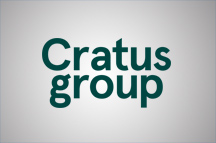Would postponing elections in 2026 undermine Labour’s devolution drive?
As my colleague Sam Carmichael reflected upon last week, Labour Party Conference “made clear that shifting power from Whitehall to the regions is central to Labour’s vision”. Indeed, back in December the link between delivering devolution to communities and restoring trust in politics was a key theme of the English Devolution White Paper. Language matters, and it’s important to stress that local elections in nine areas this year were postponed (not cancelled). This week I ask whether further postponement of some elections in order to facilitate Local Government Reorganisation and Devolution is something this Labour Government can countenance.
These postponements were not unprecedented, in 2021 the then Communities Secretary Robert Jenrick supported requests by three local authorities (Cumbria, Somerset and North Yorkshire) to postpone elections following decisions to create new unitary authorities in all three areas.
It’s also important to acknowledge that 2026 will bring about new elections for the first time, including the inaugural election for a Mayor of Greater Essex. Conservative Cllr Louise McKinlay was the first candidate to be selected for the contest, whilst Cllr Russell Quirk (who recently won the Hutton South by-election) has indicated that he would like to be Reform UK’s candidate next May. The contest is largely seen as race between the Conservatives and Reform UK, as I wrote previously in July.
In Surrey, the County Council elections postponed this year are set to be scheduled for May 2026 but look unlikely to proceed given the pace at which the county prepares to implement LGR and Devolution. With elections for the new unitary authorities in Surrey expected to be in May 2026. The government is set to respond to Surrey’s local government reorganisation plans by the end of this month.
Navigating the costs and savings of LGR and Devolution whilst retaining democratic accountability amongst locally elected representatives will likely become more challenging from the perspective of party management. With the Labour Party gripped by a Deputy Leadership contest this month (the ballot closing on Thursday 23rd of October), many will see underperformance in the 2026 local elections, Scottish Parliament and Senedd election as destabilising to the Party’s leadership.
Reform UK’s string of Mayoral victories this year along with a number of wards in recent council, as well as seats gained through defections, will no doubt add pressure on the Government to consider whether postponing District and County elections in Devolution Priority Programme (DPP) areas is something it could consider. The risk of playing up to a narrative about running scared from Reform UK is evident, regardless of the sensible financial and logistical arguments some have made in favour of further postponement. District and County Councillors elected in 2026 within DPP areas would serve severely shortened terms in office.
With Reform UK’s victory last week in Brentwood (the party’s seventh recent win in Essex), the Party looks well placed to win the first ever election for a Mayor of Greater Essex. Reform UK would perhaps argue that they’d want the opportunity to field candidates for District and County Council elections, even if those members would only be in office for a year or so before being replaced by new shadow authorities.
What remains to be seen in the next three months or so is how the Government will respond to this democratic dilemma and how Reform UK might respond if elected to or indeed forming administrations which will need to engage with LGR and Devolution in some form.
by Jake Shepherd, Account Manager (Planning)
Cratus’ Devolution Diaries will continue to reflect and provide insights about Local Government Reorganisation and the Devolution agenda. In the meantime, please get in touch if we can help you and your business navigate the changes.












